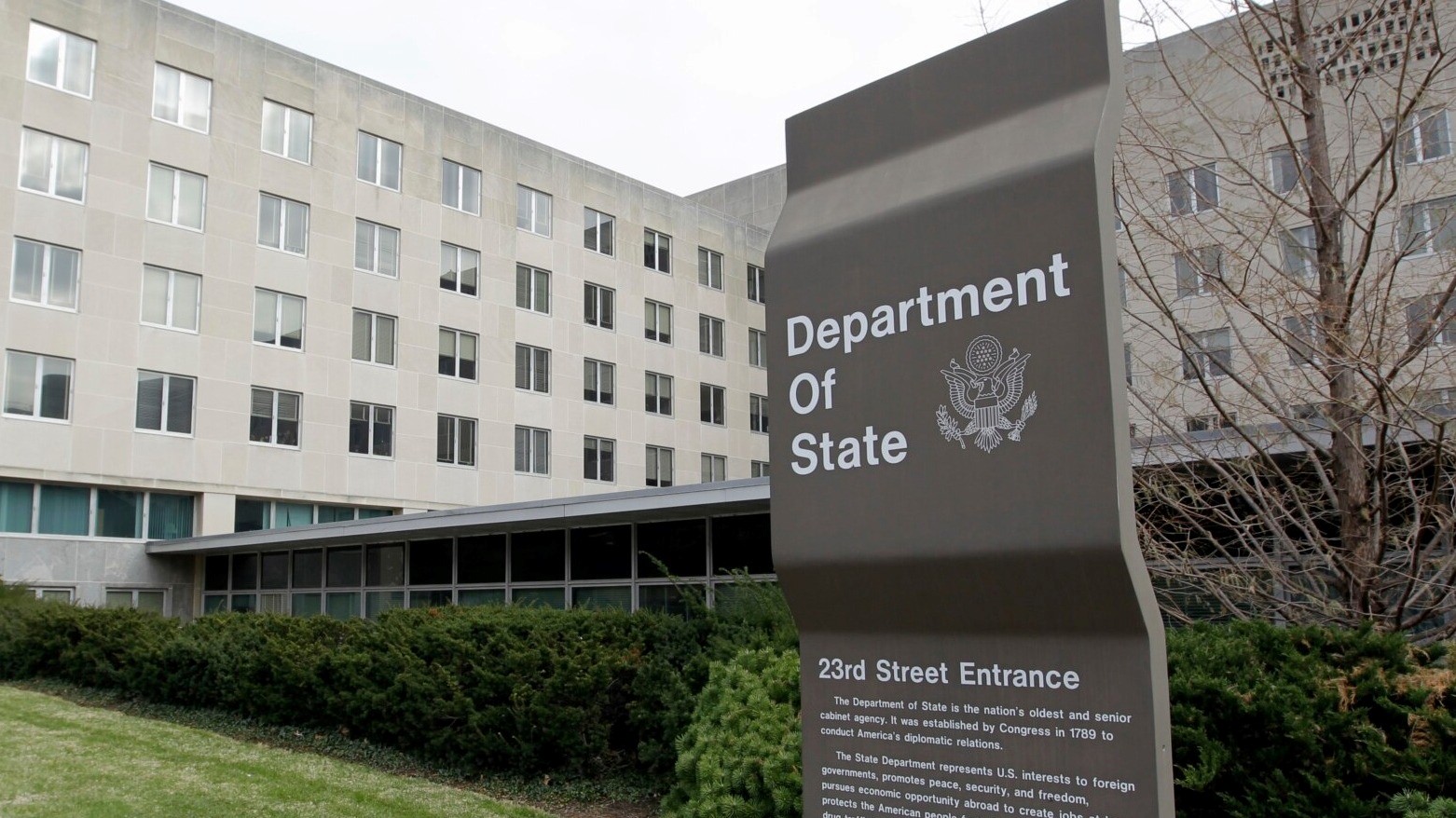U.S. Aid to Iraq over Past Decade: $3.6 Billion
“Since ISIS’s atrocities in 2014, we have provided Iraq around $3.6 billion of life-saving aid.”

WASHINGTON DC, United States (Kurdistan 24) – For a variety of reasons, the Biden administration is marking with several announcements and events the past decade— since August 7, 2014—when the U.S. re-intervened in Iraq to prevent ISIS from overrunning the country.
They include stressing what the U.S. has done for Iraq in the past decade, as well as recognizing and honoring the victims of ISIS’s brutality.
As the U.S. ambassador to Iraq, Alina Romanowski, tweeted, “Since ISIS’s atrocities in 2014, we have provided Iraq around $3.6 billion of life-saving aid.”
“The U.S. will continue to partner with the Iraqi government, NGOs, and civil society,” her tweet continued, “to address the humanitarian needs of Iraqi refugees and IDPs.”
DYK...Since ISIS’s atrocities in 2014, we have provided Iraq around $3.6 billion of life-saving aid. Our work doesn't stop there. The U.S. will continue to partner with the Iraqi government, NGOs, and civil society to address the humanitarian needs of Iraqi refugees and IDPs.
— Ambassador Alina L. Romanowski (@USAmbIraq) July 25, 2024
In a similar spirit, Secretary of State Antony Blinken met on Tuesday with leaders of the Yezidi community, which was attacked with particular brutality, after ISIS crossed the Syrian border, where it was established, and burst into Iraq.
Blinken began the discussion by saying, “We’re here today ahead of the ten-year commemoration of the ISIS genocide against Yezidis, Christians, and Shia Muslims,” as he affirmed U.S. support for those communities “that most suffered under ISIS.”
Among the U.S. objectives which Blinken outlined is to ensure “that this can never happen again.”
“Over one million Iraqis remain displaced inside Iraq,” he said, “including about 300,000 Yezidis,” while “2,600 Yezidis remain missing and unaccounted for.”
He noted that over the past decade, the U.S. has “invested some $500 million specifically targeted toward the recovery of communities that were most affected by ISIS.”
“This investment is on top of billions of dollars in assistance that we provided to help those who were most in need,” Blinken added.
Accommodating Iraq’s Prime Minister
Ten years is a long time, and Iraqi Prime Minister Mohammed Shia al-Sudani would like to normalize Iraq’s situation as much as possible. The Biden administration wants good relations with Iraq and would like to accommodate him.
Hence, the discussions earlier this week about transitioning the security relationship between the U.S. and Iraq from one based on the anti-ISIS Coalition to a bilateral partnership, even as it is also clear from previous experience that a premature U.S. withdrawal could be quite harmful.
Read More: US, Iraq Hail Continued Security Cooperation, as Second Dialogue Session Ends
Indeed, Blinken was a senior figure in the Obama administration when ISIS emerged. That was just a few years after President Barack Obama had withdrawn all U.S. forces from Iraq.
Obama had opposed the 2003 war that overthrew Saddam Hussein and his regime even before he became a national figure. At that time, Obama was a state senator, based in Illinois.
Only two years later, in January 2005, did Obama even arrive in Washington, when he came as a first term senator. Despite his manifest inexperience in national security matters, Obama maintained the same negative perspective toward the Iraq war, after he became president.
So Obama withdrew U.S. forces from Iraq as soon as he reasonably could—which was December 2011. Yet that would soon prove to be a big mistake, and Obama was obliged to reverse himself.
ISIS emerged in the midst of the Syrian civil war. It was led by members of Saddam’s former regime, as the highly regarded German news magazine, Der Spiegel, explained.
Read More: Da’esh: the West is confused
Indeed, the late Najmaldin Karim was the Kurdish governor of Kirkuk until October 2017, when Iraqi forces assaulted and captured the province. Karim told Kurdistan 24 much the same.
Iraqis associated with Saddam’s rule had just changed how they looked. They put on dishdashas, grew beards, and shouted Islamic slogans.
But “they’re all local people,” Karim affirmed.
Read More: Najmaldin Karim: Islamic State is resurgent, dominated by locals
Blinken was a senior official in the Obama administration. As he told the Yezidi leaders on Tuesday, “I have very strong memories of that time,” when ISIS attacked Iraq, “having served in government when the attacks took place.
“I remember powerfully the suffering, the desperation of so many people, and the United States engagement to do everything we could to turn that around and to help protect those who were endangered,” Blinken said.
So, presumably, Blinken also understands the risks in another premature withdrawal of U.S. forces from Iraq.
ISIS is not defeated. As Maj. Gen. Abdulkhaliq Talaat, the Kurdistan Region’s representative to the Joint Operations Command in Baghdad, told Kurdistan 24 last week, “While ISIS may not be as strong as it used to be, the presence of sleeper cells and security gaps in certain areas makes their threats more prominent.”
Read More: ISIS remains a persistent threat to Iraq's security, warns Kurdistan Region Major General